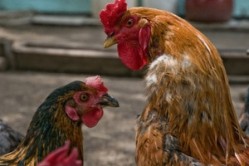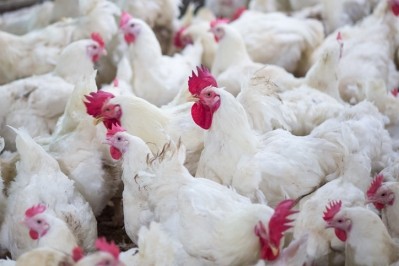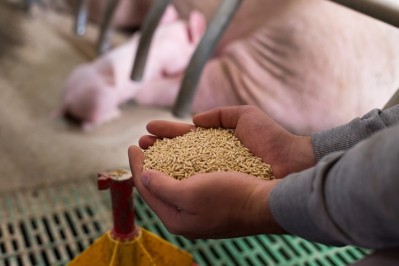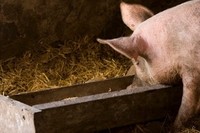Exclusive Interview: We talk to Global Head of Animal Nutrition at BASF
Verenium integration makes headway as BASF leverages the potential of feed enzymes

We caught up with global head of BASF animal nutrition, Dr Alexandra Brand, to hear about plans for the company’s enzyme platform following the $62m acquisition of US biotechnology group, Verenium, and recent tie-ups with enzyme firms Direvo and Dyadic.
BASF, said Dr Brand, has made great headway in its bid to quickly incorporate the San Diego-based Verenium into its own structures.
“We have already started our first joint innovation projects for feed enzymes,” she said, adding that the R&D team of Verenium is now part of BASF’s central technology platform for biological research.
The October 2013 realised deal gives the BASF animal nutrition division, she said, access to a broad library of new enzymes and a team of researchers highly experienced in frontier science and product development.
In a note on the Verenium acquisition last year, Jeffries analyst Laurence Alexander said:
“This deal should enhance the growth profile of BASF’s enzymes franchise, and herald a significant longer-term shift in the competitive landscape in industrial enzymes and agricultural enzymes for Novozymes and DuPont.”
Gene expression
The C1 enzyme technology platform BASF is utilizing, under license agreement from US biotech company, Dyadic, is said to be highly complementary to Verenium’s gene library.
Brand said the Florida-based Dyadic is “an important R&D strategic partner for us.”
Researchers from both companies have been teaming up on the production of new types of enzymes for the feed sector, using the C1 technology gene expression tools.
Commercial phase of new enzyme
The BASF animal nutrition unit has also initiated enzyme projects with German firm, Direvo. The two German companies signed an R&D collaboration deal in May last year.
Brand said BASF is set to accelerate the production of the novel feed enzyme – mannanase – it acquired from Direvo nearly a year ago, just at the end of the product’s development phase.
“We are now scaling up, to later broadly register and commercialize [the enzyme],” said the head of the BASF division.
Mannanases tend to be used in corn and soy feed for broiler hens and swine, to improve nutrient uptake and weight gain.
The protease for pigs and poultry that BASF is developing in tandem with Direvo is now transferring to its new Verenium R&D platform, added Brand.
Proteases are increasingly used in animal nutrition to improve the digestibility of soy.
Brand said they make livestock husbandry more sustainable.
“Proteases, like all feed enzymes, help improve feed digestion, nutrient utilization and wellbeing of animals.
Thereby, they make livestock production more efficient, they help save on consumption of raw materials like feed plants and make it possible to produce more with less,” she said.
Enzymes in aquaculture
In terms of enzyme products, BASF animal nutrition mainly targets the poultry and pig sectors where its products have "broad registration in all regions of the world."
Monogastric species like pig and poultry, said Brand, have the highest potential to improve digestion and nutrient absorption with the aid of feed enzymes.
But BASF is exploring the use of enzymes in other animal sectors, particularly aquaculture, she added.
Next generation phytase
The company also has plans for well established BASF feed enzymes such as the phytase product, Natuphos.
Brand said the strategy for the Natuphos product line is to build on its strength:
"We have developed a new generation Natuphos that will be launched to the feed industry soon. The product is currently in the registration phase."
Late last year, BASF received approval in the EU for its Natugrain TS enzyme for its use in feed to fatten pigs. It was already authorized for use in the diets of poultry.
Natugrain TS is a thermostable combination of the NSP enzymes endo-1,4-beta-xylanase and endo-1,4-beta-glucanase.
It is said to counteract the anti-nutritive effects of the pentosans and beta-glucans contained in common feeds.
Innovation pipeline
As well as improving feed conversion by enhancing digestibility and minimizing anti-nutritive factors, BASF, said Brand, is focused on minimizing losses of active ingredients during modern feed production, which “is a permanent challenge.”
She said the division is continuously striving to improve its formulation technologies to bring down costs of use by enhancing the stability of ingredients against heat and moisture.
And growth through acquisitions remains a firm strategy for the division.
“BASF has the clear ambition to further grow its strong presence in animal nutrition in all markets and in enzymes in particular; be it organically or by complementing the business with selected acquisitions and strategic partnerships,” said Brand.













